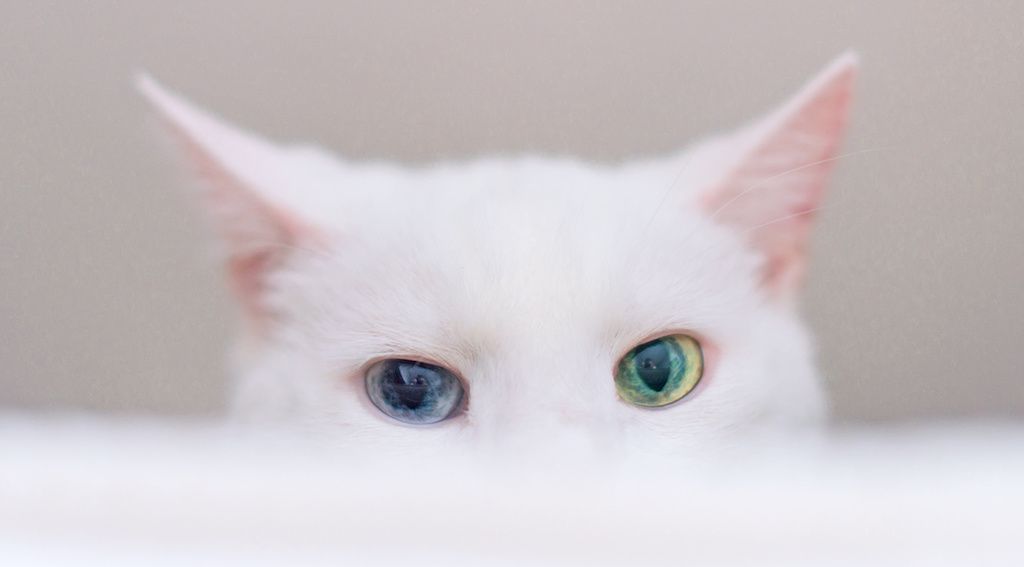Medical Management of Deep Ulcerative Keratitis
A recent article illustrates successful treatment of severe corneal ulcers in 13 feline patients.

Deep ulcerative keratitis is a serious ophthalmic condition in cats that is often managed surgically via enucleation, keratoplasty, or placement of a conjunctival graft or flap.
Researchers at the University of California, Davis Veterinary Medical Teaching Hospital recently performed a study to determine if intensive medical management offered a viable treatment alternative to surgery for feline patients with severe deep ulcerative keratitis.
Case Series
The authors reviewed facility medical records of cats suffering from corneal ulceration with at least 40% stromal loss. Eight neutered males, 1 intact male, and 4 spayed females met criteria for inclusion in the retrospective study. Median age at initial presentation was 5.9 years, while 1 cat was adopted with no known history. Before presentation, all cats had been treated with topical ophthalmic antibiotics, serum, atropine, or neomycin-polymyxin-dexamethasone, and 10 cats also received systemic antibiotics, analgesics, or nonsteroidal anti-inflammatory drugs. A third eyelid flap was also placed in 1 cat before referral.
RELATED:
- How to Safely Treat Unknown Eye Problems
- ACVC 2017: Understanding Skin Disease in Cats
Size and shape of corneal ulcers varied widely, with a median depth of 75% (range, 40%-100%), and 4 ulcers were perforated. Additional ophthalmic examination findings included corneal vascularization (11 cats), corneal stromal leukocytic infiltrate (9 cats), keratomalacia (4 cats), and concurrent anterior uveitis (7 cats). All cats appeared painful on examination, and several had neurophthalmic deficits. Median intraocular pressure of the affected eye was 11 mm Hg (range, 2-15 mm Hg) in examined cats.
Cytology and bacterial culture were performed for a subset of cases. Six of 8 ulcers had suppurative inflammation, and 2 of 8 aerobic culture samples yielded notable bacterial growth with coagulase-negative Staphylococcus and/or Streptococcus viridans.
Six cats were hospitalized for medical management due to owner preference or unrecorded reasons, and median hospital stay was 2.5 days. All cats were treated with topical and systemic medications. Topical antibiotics included compounded cefazolin in artificial tear solution, ofloxacin, and/or ciprofloxacin. Twelve and 10 cats also received topical serum and atropine, respectively. Topical antibiotics and serum were initially applied every 2 to 4 hours. Systemic prednisolone, robenacoxib, or antibiotics were administered to nearly half of the cats. Most cats were administered buprenorphine, and all but 1 wore an Elizabethan collar during treatment.
Treatment Outcome
All corneal ulcers resolved with medical treatment, and the median time to re-epithelialization was 21 days. At the time of publication, 9 cats required no further rechecks and the median number of days from initial to final examination was 35, with 2 to 6 recheck exams required. Cranial nerve deficits also resolved for all cats.
The median duration of treatments, in days, was as follows:
- Transmucosal buprenorphine - 18
- Oral robenacoxib - 8
- Oral prednisolone - 28
- Topical atropine - 25
- Topical antibiotics - 29.5
- Elizabethan collar use - 28
Take-home Message
All 13 examined cats experienced resolution of severe corneal ulcers with medical treatment, demonstrating that intensive medical management with antibiotic therapy and analgesia is a successful alternative to surgery for select patients with deep ulcerative keratitis.
Dr. Stilwell received her DVM from Auburn University, followed by a MS in fisheries and aquatic sciences and a PhD in veterinary medical sciences from the University of Florida. She provides freelance medical writing and aquatic veterinary consulting services through her business, Seastar Communications and Consulting.